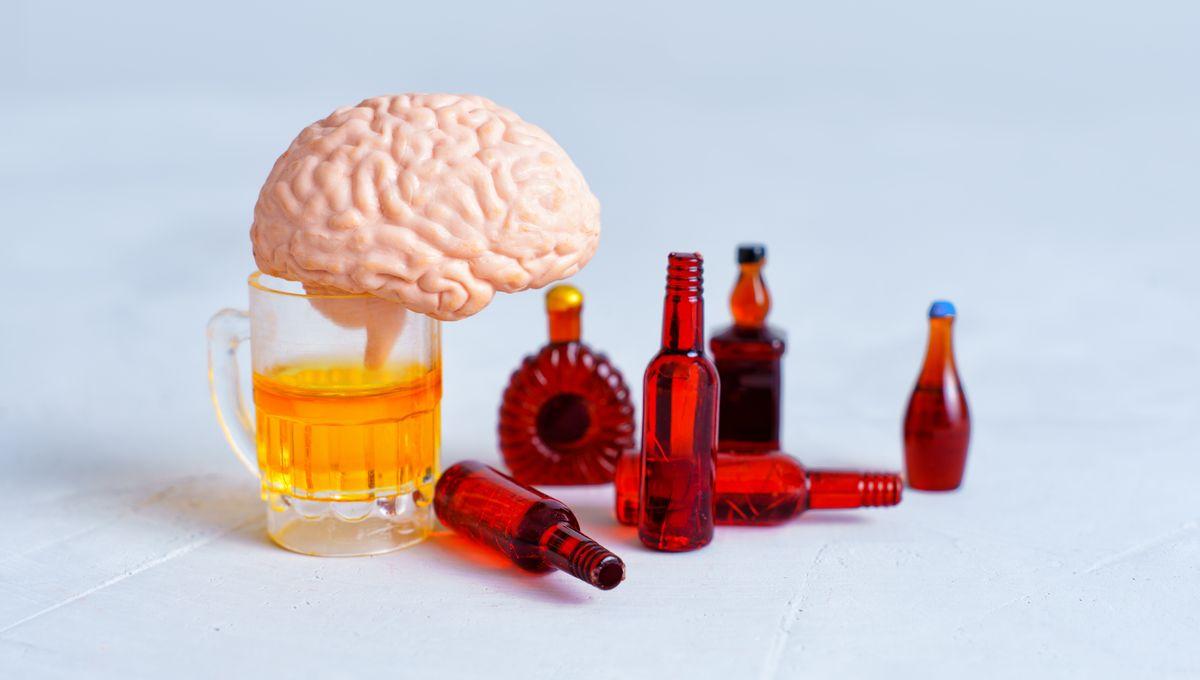-
Feed de Notícias
- EXPLORAR
-
Páginas
-
Blogs
-
Fóruns
Alcohol And Dementia Risk: There Is No Safe Level Of Drinking

Alcohol And Dementia Risk: There Is No Safe Level Of Drinking
Drinking alcohol, even in small amounts, likely increases dementia risk – that is the conclusion of a huge new study, based on data from over half a million people.
The rest of this article is behind a paywall. Please sign in or subscribe to access the full content. Previous research, based on observational studies, hinted that light drinking may have a protective effect on the brain; some have suggested there may even be an “optimal dose” of alcohol for brain health. According to this latest work, which is the largest combined observational and genetic study to date, this is not the case. There is, it concludes, probably no safe level of drinking: dementia risk rises in direct proportion to alcohol consumption. To come to these conclusions, the researchers used a mix of observational data and genetic methods, based on two large databases: the US Million Veteran Program (MVP) and the UK Biobank (UKB). The former includes people of European, African, and Latin American ancestry, while the latter is made up of people with predominantly European ancestry. In total, almost 560,000 participants aged between 56 and 72 were enrolled at the start of the study and monitored until their first dementia diagnosis, death, or the date of last follow-up (December 2019 for MVP and January 2022 for UKB), whichever came first. This equated to an average monitoring period of four years for MVP and 12 for UKB. During the monitoring period, 14,540 of the participants developed dementia, and 48,034 died. Their alcohol consumption was derived from questionnaire responses – over 90 percent said they drank alcohol – and the Alcohol Use Disorders Identification Test (AUDIT-C), a clinical tool that screens for hazardous drinking patterns. The observational analysis revealed U-shaped associations between alcohol and dementia risk: a 41 percent higher risk was observed among non-drinkers and heavy drinkers (over 40 drinks per week), and a 51 percent greater risk among those with alcohol use disorder, compared with light drinkers. However, Mendelian randomization genetic analysis – which drew on data from multiple large studies of dementia, involving 2.4 million participants, to ascertain lifetime genetically predicted risk – told a different story. Dementia risk steadily increased with more genetically predicted drinking. The team used three measures related to alcohol use in the study: self-reported weekly drinks (associated with 641 genetic variants); problematic “risky” drinking (80 genetic variants); and alcohol dependency (66 variants). Higher genetic risk for all three measures was associated with an increased risk of dementia, with a linear increase in risk the more alcohol consumed. Between one and three extra drinks a week, for example, was associated with a 15 percent higher risk, while a twofold increase in the genetic risk of alcohol use disorder was associated with a 16 percent increase in dementia risk. Interestingly, alcohol intake increased dementia risk, but individuals who developed dementia experienced a decline in alcohol intake over time, which may explain the supposed protective alcohol effects in observational studies. “These findings provide evidence for a relationship between all types of alcohol use and increased dementia risk,” the researchers conclude. “While correlational observational data suggested a protective effect of light drinking, this could be in part attributable to reduced drinking seen in early dementia; genetic analyses did not support any protective effect, suggesting that any level of alcohol consumption may contribute to dementia risk.” There are some limitations to note, namely that the strongest statistical associations were found in people of European ancestry, which may bias the results. Still, the researchers suggest that reducing alcohol consumption could be an important strategy for dementia prevention. In fact, they theorize that public health initiatives that reduce the prevalence of alcohol use disorder could lower the incidence of dementia by as much as 16 percent. The study is published in BMJ Evidence-Based Medicine.


